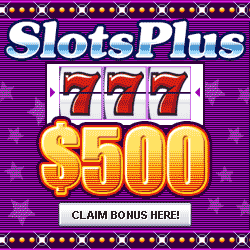Matching Video Poker Memory to Reality
by John Grochowski
The memory cheats in just about any walk of life. We remember things a little differently than the way they actually happened. We remember some things happening more often than they actually do and some things less often than they actually do.
I remember being a stellar student, polite and well-mannered when I was 15 years old. But I won’t tell my own 15-year-old to ask my parents about it. Chances are their memories will be somewhat different than my own.
The memory cheats at video poker, too. My friend Dave has been a video poker player for at least a decade. He's read the books, practices on the computer and is ready to go when he plays for money.
Still, when he hits the bad streaks, he feels the same frustrations as any other player. After one night when he dropped three $20 bills into a quarter machine without getting much of anything back, he called it a night early, and called me to vent.
"Why is it," he wanted to know, "that every time I had a one-card draw, the replacement would be the same card I threw away? You know, I'd hold 8-9-10-Jack, hoping for a straight, and throw away the 4 of clubs. Up would pop the 4 of hearts.
Or I'd hold two 6s and two Kings and throw away a 9 of diamonds. Would I get the full house? Of course not. I'd just get another 9."
Sounds like one of those nights, I sympathized. We all have them.
"Sure, I know the losing nights are going to happen," he said. "I'm prepared for that. I set my limits, have my entertainment budget for a casino night and never gamble more than that. That's all part of the game.
"What I wasn't prepared for was those one-card draws. Same card. Every time."
Every time? "Well, every time that I noticed."
Every time that he noticed. That was the key, of course.
"You mean there were probably some one-card draws that have slipped my mind because they weren't the same card, right? You're probably right."
Dave sighed. His rant was running out of steam. He's a well-prepared, rational sort, and he was slipping back into analytical mode.
I suggested that, yes; there probably was some selective memory at work here.
He was remembering only the one-card draws that fit his pattern, and that hurt him. Gamblers are like that --- heck, HUMANS are like that. In the casino we see it with blackjack players who are convinced the dealer draws a 5 every time she has a 16, craps players who are convinced a loser comes every time someone blurts out the nasty word "seven" and video poker players who think every one-card draw brings a replacement card of the same denomination.
Such patterns tend to disappear when we look at them more closely. If you keep track of the dealer's draw EVERY time she has a 16, or track the next roll EVERY time someone says "seven" or keep tabs on the replacement card EVERY time you have a one-card draw, you'll find there's no pattern there at all.
"It did seem I was getting an unusual number of same-card draws," Dave said, quieter now.
That's possible, I told him. In the short term, there can be some wild deviations from the normal, expected results. In video poker, a little less than 1 in 16 draws should bring same card, different denominations. After we've seen the initial five cards, there are 47 possible replacement cards. If you have one 8 and chuck it away, there are three 8s remaining in the deck that could reinforce Dave's pattern. So 3 of 47 or 1 per 15.67, possible replacement cards are the same denomination as the discard.
Could we draw same-card replacements two or three times in a row? Sure. Video poker moves so fast, and we see so many hands, that we'll see all kinds of unusual streaks. In a short session, could, say, 5 of 10 draws be same-card placements? Sure.
"No doubt you're right," Dave said. "If I'd played a little longer and actually kept track, I'd have gotten some one-card draws that weren't the same card. It was just a frustrating session.
"But tell me, if you had a machine that actually did give you the same card on every one-card draw, is there anything you could do to combat it? I guess you'd never draw to straights, for starters."
Never drawing to straights would be a start. You'd discard the entire hand unless it had either a pair (with 6-6-8-9-10 you'd hold 6-6) or a high card (with 4-8-9-10-Jack, you'd hold the Jack).
Starting with two pairs, you'd hold both pairs unless you were playing a game such as Double Bonus in which two pair pays only 1-for-1, and one of the pairs was a paying hand of Jacks or better. In that case, you'd hold only the high pair.
Same-card, one-card draws actually would be to your advantage when you have four cards to a flush. Say you have four hearts plus an 8 of clubs. If you're guaranteed that tossing the 8 of clubs will bring you an 8 of either spades, diamonds or hearts, you have a 1 in 3 chance of making the flush. That's far better than the 1 in 5.2 chance you really have of making a flush with a one-card draw. Dave chuckled.
"So it wouldn't always be a disadvantage. Interesting. But it's not reality, is it?"
No, it's not. That's not the way the games really work. One-card draws aren't just a matter of the same old thing.
John Grochowski’s website is: www.casinoanswerman.com
| SlotsPlus with a Welcome Bonus of $500 |
 |